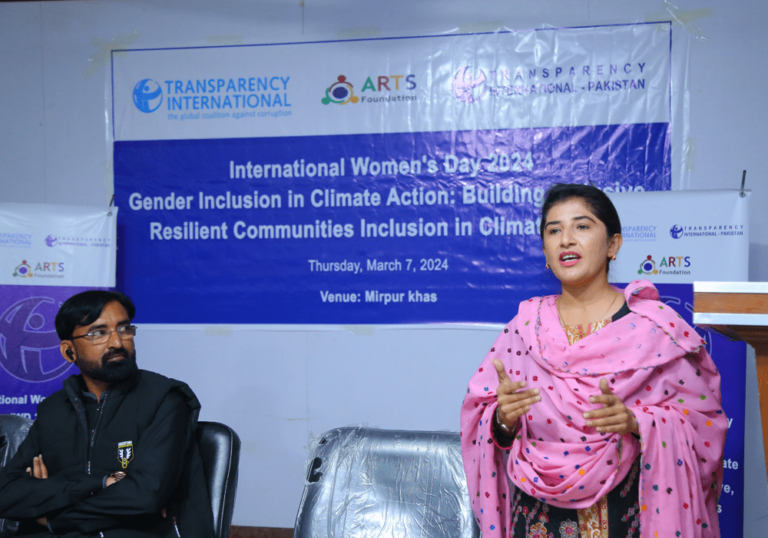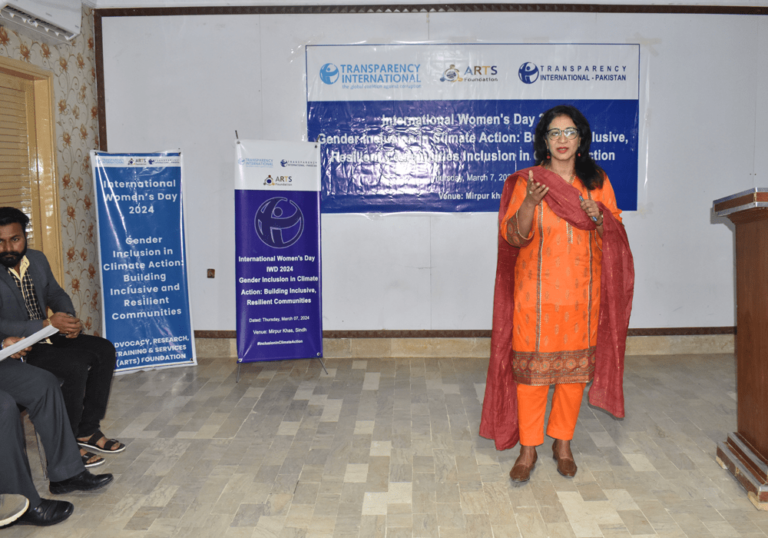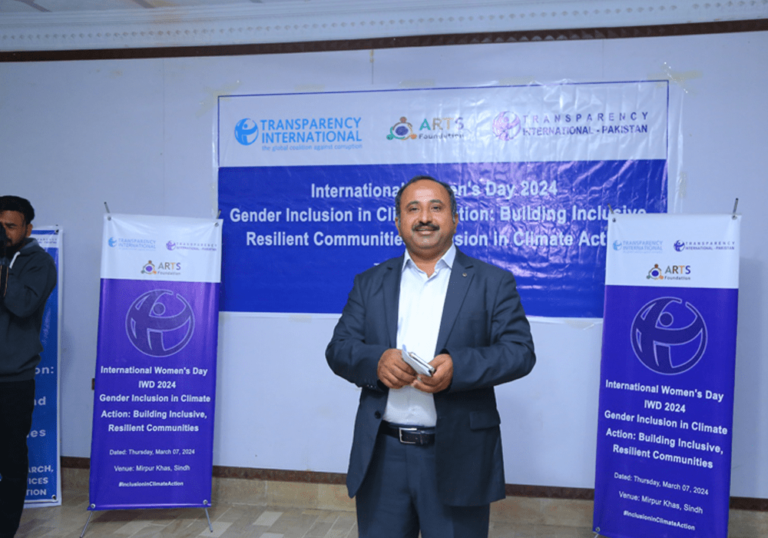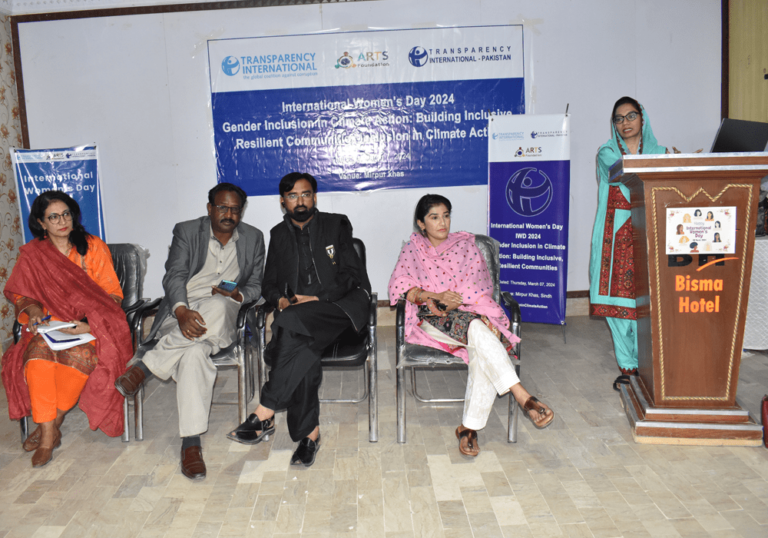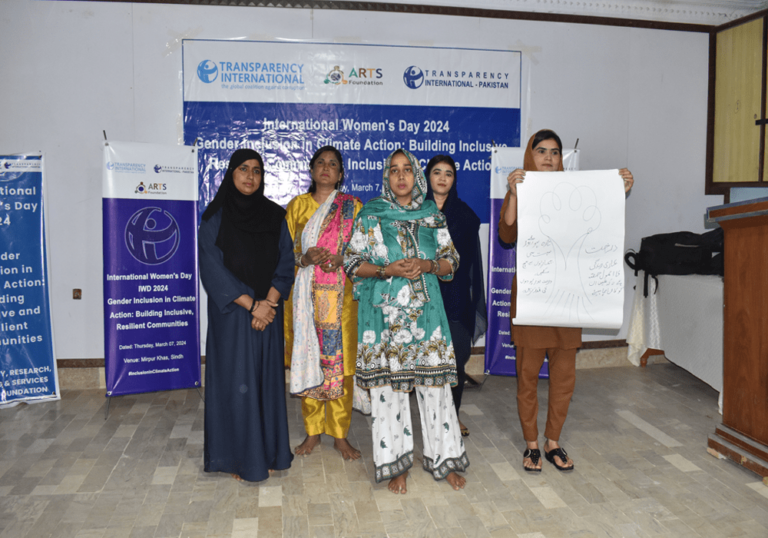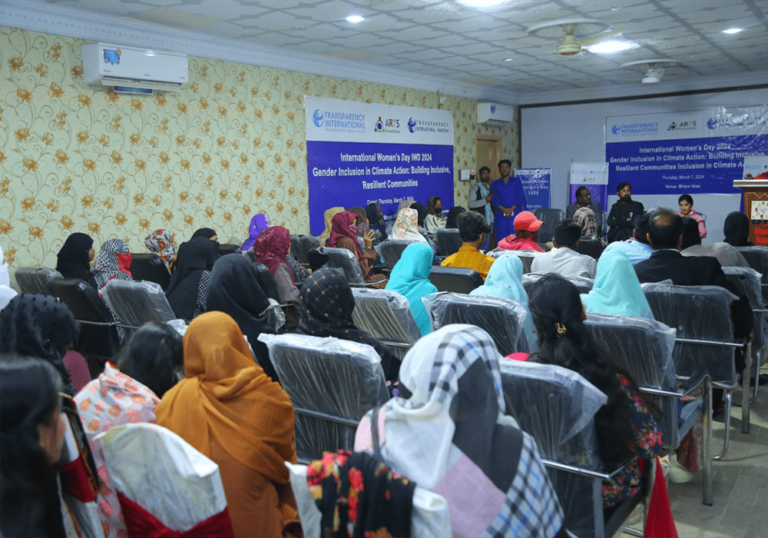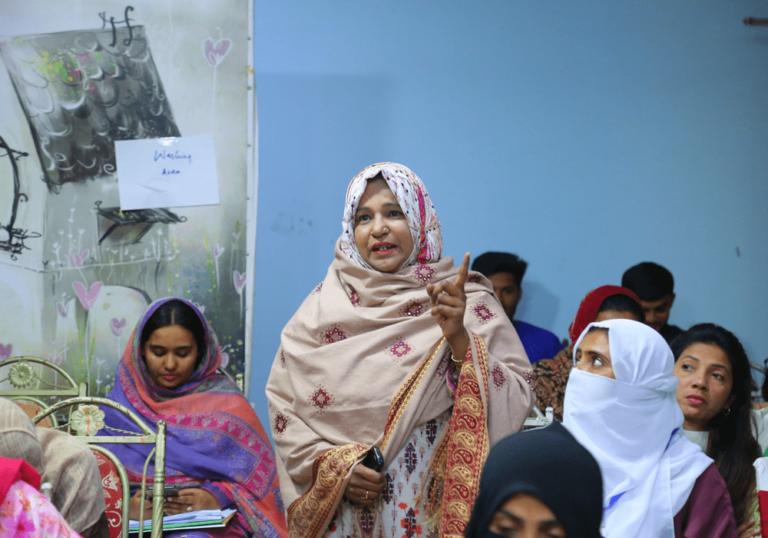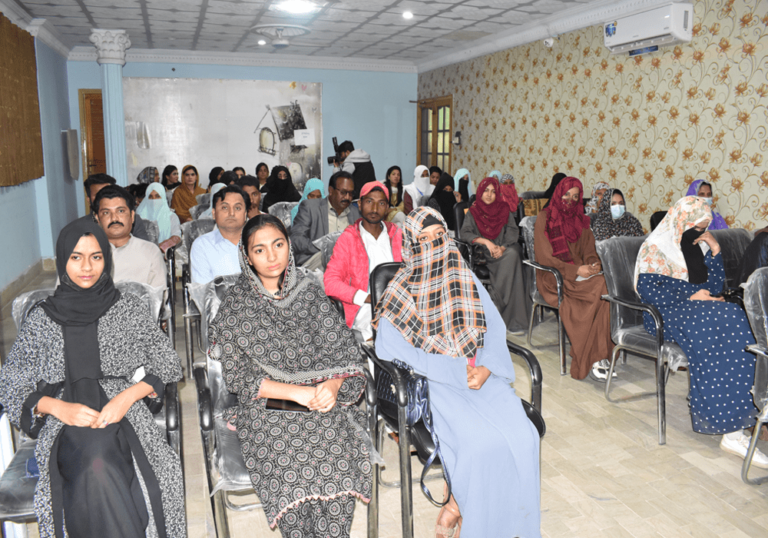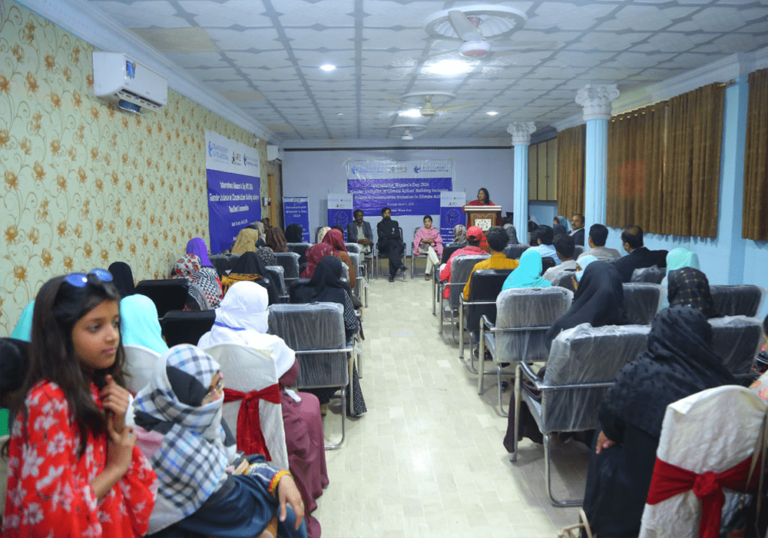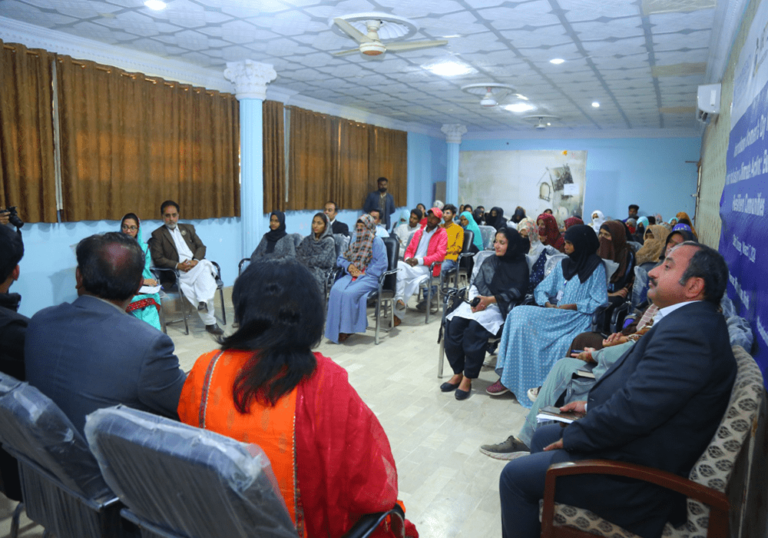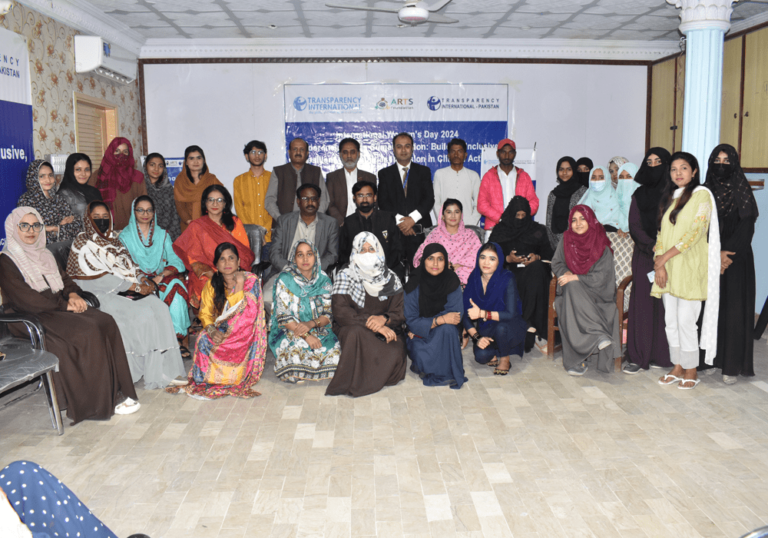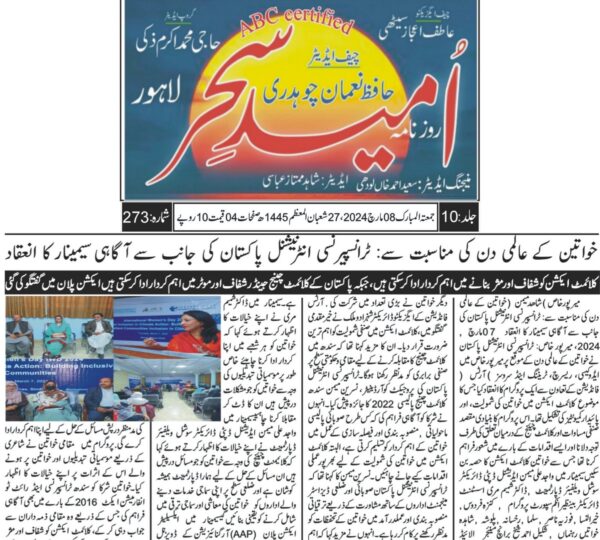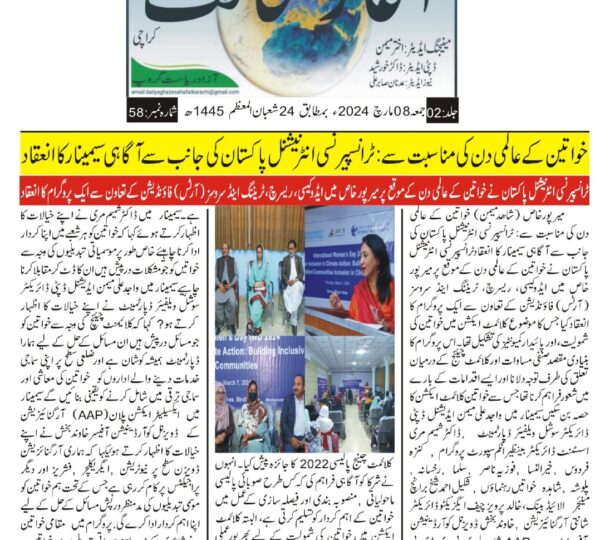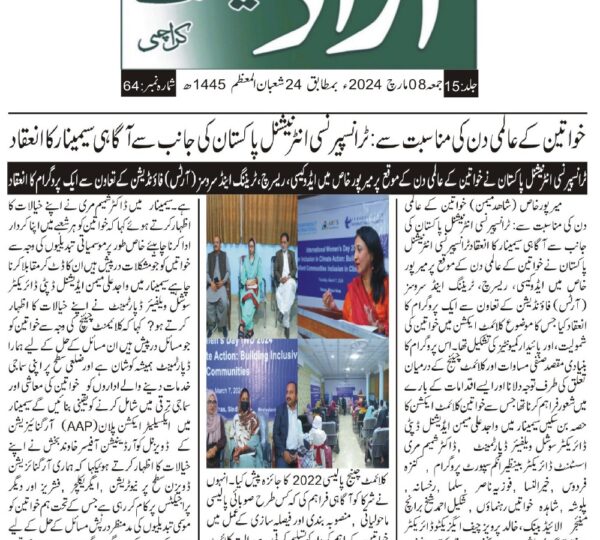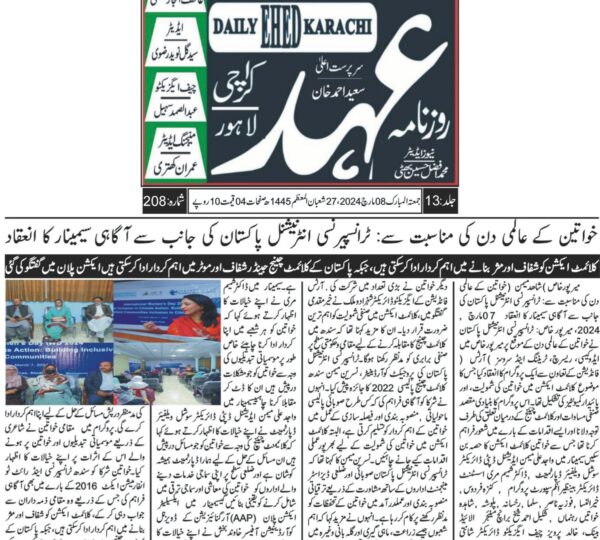- Home
- Seminar on International Women’s Day 2024: Gender Inclusion in Climate Action: Building Inclusive, Resilient Communities
Seminar on International Women’s Day 2024: Gender Inclusion in Climate Action: Building Inclusive, Resilient Communities
Seminar on International Women’s Day 2024: Gender Inclusion in Climate Action: Building Inclusive, Resilient Communities
Venue: Mirpur Khas, Sindh
Date: Thursday, 07 March, 2024
Transparency International Pakistan organized a Seminar on International Women’s Day 2024, themed “Gender Inclusion in Climate Action: Building Inclusive, Resilient Communities” on Thursday, 07 March 2024 in District Mirpur Khas, Sindh. The main objective of this seminar was to address the intersectionality between gender equality and climate change resilience and to strengthen the resilience of communities to climate change impacts by fostering inclusive approaches.
Around 70 diverse group of people participated in the seminar, with women comprising the majority, from civil society, social activists, communities, minority groups, and print and electronic media. Ms. Shamim Murree, Assistant Director, Benazir Income Support Programme (BISP), and Mr. Wajid Ali Memon, Additional Deputy Director, Social Walfare Department also graced the seminar with their presence.
The seminar formally started with the recitation of the Holy Verses of different religions. After which a round of introduction was carried out. Mr. Shahzado Malik, Executive Director of ARTS Foundation welcomed the participants and thanked them to for taking out time to participate in this important discussion.
Mr. Shahzado, while delivering the opening remarks, emphasized the critical need to prioritize gender inclusion in climate action initiatives, highlighting the profound impact it can have in building inclusive, resilient communities in Sindh and beyond.
Ms. Nasreen Memon, Project Coordinator, gave an overview of TI Pakistan and the project “Strengthening Integrity and Inclusiveness in Climate Governance in Pakistan” and emphasized that the program aims to empower marginalized communities especially women, to participate in climate planning and decision making. She highlighted that including gender voices in climate action is crucial for ensuring equity and effectiveness. Women often bear the brunt of climate change impacts and possess unique knowledge and perspectives vital for resilient solutions. Integrating gender considerations fosters inclusive policies and enhances the sustainability of climate initiatives.
Afterwards, Mr. Khalid Parvaiz, representative from minority group spoke on the importance of interfaith harmony, for developing a gender equitable and climate resilient societies. He said that gender equality begins at home, fostering stronger societies and nations. Empowering individuals within households lays the foundation for broader societal progress. Promoting equality within families cultivates environments of respect and opportunity for all.
Ms. Shamim Murree, Assistant Director, Benazir Income Support Programme (BISP), addressed to the participants and said that women actively pursuing education, employment, and entrepreneurship contribute significantly to societal advancement. Their engagement fosters economic growth, innovation, and social empowerment, benefiting both individuals and communities alike. She said that educated and empowered women also promote sustainable practices that mitigate the impacts of climate change, benefiting both individuals and communities alike.
A performance was also carried out by local community women, themed Inclusion for Climate Action, where the artists highlighted that the inclusive participation of women in climate action is imperative for comprehensive and effective solutions to global challenges. The artists underscored the importance of preserving the environment, conserving ecosystems and reducing pollution, which is paramount for mitigating and adapting to climate change impacts.
Later on, Ms. Nasreen Memon provided an overview of Sindh Climate Change Policy 2022. She briefed the participants that the Provincial Policy recognizes the crucial role of women in climate planning and decision-making processes, however proactive approach should be taken to implement climate action with gender perspective.
She highlighted that TI Pakistan focuses on advocating with the provincial and local disaster management bodies on the inclusion of women through consultation. Having gender inclusive policies and prioritizing the needs of the women in key sectors is very important. Gender oriented policies will enable us to take into account the needs of women in these sectors. Ms. Memon emphasized that Provinces need to develop their own Climate Gender Action Plans.
Mr. Shahzado Malik, explained The Sindh Transparency and Right to Information Act, 2016 to the participants, where he highlighted that how right to information law can bridge the gender gap in climate action. Emphasizing this law as a crucial social accountability tool for climate planning, Mr. Malik emphasized that The Sindh Transparency and Right to Information Act, 2016 is crucial as it promotes accountability and transparency within governmental institutions. It empowers citizens by granting them access to information, fostering a culture of openness and democracy.
He also explained social accountability tools for public participation and monitoring aimed at fostering just and transparent climate action, such as public budgeting, public consultations, social audits, community-led monitoring, and finance dashboards on climate department websites. Participants were also introduced about TI Pakistan’s Legal Advice Centre, which serves as a pivotal resource for promoting transparent climate action. It provides free legal guidance to ensure corruption in climate projects is highlighted, and accountability and fairness takes place.
In The seminar, community women expressed their emotions on gender & resilience through art and poetry, exploring the intersection of gender and climate change.
A session on Pakistan’s Climate Change Gender Action Plan was also conducted. Ms. Fariha Fatima, Assistant Project Coordinator, TI Pakistan discussed its key objectives. She highlighted that the Plan integrates gender and climate in six priority sectors: disaster risk reduction, agriculture and food security, forests and biodiversity, integrated coastal management, water and sanitation, and energy and transport. The Climate Change Gender Action Plan ensures that national programmes to address climate change are gender responsive, and it aims to strengthen the implementation of national climate change policies and plans, however some of the gap areas in implementation reduces it effectivity.
Mr. Wajid Ali Memon, Additional Deputy Director, Social Walfare Department addressed the participants and underscores the intersectionality of gender equality and environmental sustainability. He said that it’s an opportunity to highlight women’s leadership in driving inclusive and effective responses to climate change.
Towards the end, Mr. Shahzado Malik concluded the seminar by expressing gratitude to TI Pakistan, the district administration, and participants from diverse communities for their active involvement and participation on this important discussion.
Participants and speakers showed their gratefulness towards TI Pakistan for organizing this seminar on International Women’s Day and discussing gender role in climate action. They pledged their commitment to furthering inclusive and equitable solutions for environmental challenges, and playing an active role in creating a climate resilient community.


